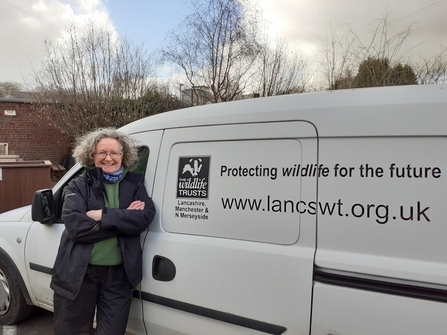What does your role involve?
I manage six nature reserves in East Lancashire with the help and support of volunteers and Trust staff in the Conservation department. (Foxhill Bank, Cross Hill and Salthill Quarries, Moor Piece, Summerseat and Upper Coldwell Reservoir)
How long have you worked for The Wildlife Trust?
I started in 1990, when it was the Lancashire Trust for Nature Conservation (with the Lapwing logo!). I spent my first 12 months at The Wildlife Trust, employed on different contracts: survey work in Burnley and Blackburn, compiling a reserves guide.
After that, I worked on regeneration-funded projects in Burnley, and Pendle and then Hyndburn, in community conservation: schools, community groups, youth work, play schemes and community outreach. From 1991, we worked in Partnership with the British Trust for Conservation Volunteers (now The Conservation Volunteers), setting up community allotments and youth volunteering in Burnley. I even ran a residential holiday. When regeneration funding started running out, I secured Lottery funding to encourage people and high school children to volunteer on nature reserves in Hyndburn. One of those pupils is now a teaching assistant at a school in Oswaldtwistle which visits Foxhill Bank Nature Reserve. (makes me feel old!)
In 2015, I applied for the East Lancashire Reserves job.
What did you do before?
I worked for a local authority in Sussex (where I’m from originally) and volunteered with the Sussex Wildlife Trust and East Sussex County Council Volunteer Ranger Service. Before that I studied Ecology at Aberdeen Uni and Geography in London.


